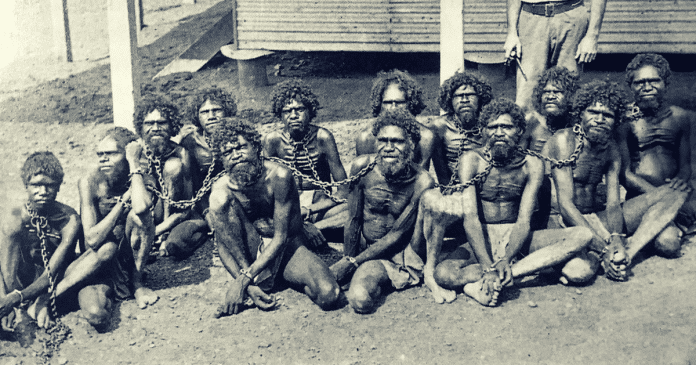Australian settlers killed Aboriginal people for many reasons :
- Reprisals for murder. After Aboriginal people attacked European people, search parties retaliated ferociously.
- Theft. Massacres in reprisal for the killing or theft of horses, livestock or property are second only to reprisals for murder of a settler.
- Struggle for land. Stockmen often led cattle to graze well beyond the limits of a station as areas needed time to recover.
- Lack of communication. Because the colonists didn't speak Aboriginal languages, and very few tried, they couldn't learn about Aboriginal people's culture or settle disputes.
- No reason. Sometimes colonists attacked for no rational reason. It could just be that the opportunity arose, or the cheekiness of the person, e.g. for being "found standing in the moonlight in the doorway of [a squatter's] hut".
- Fear of attacks. The invaders were afraid that Aboriginal people who were painted for important ceremonies were in fact performing war dances and would later attack.
- Sexual gratification. Initially, there was an over-population of male Europeans. Some sought to remove all Aboriginal males so that they could sexually abuse their women and girls.
White settlers often found no reason to spare Aboriginal men and boys. Aboriginal girls and women, however, were often kept for sexual pleasure. Research uncovered "stories of girls as young as eight who were kidnapped and raped and infected with syphilis. Teenage girls were kept for sex and chained up at night to stop them running away. One group of girls was held in a chicken wire enclosure".
No wonder that Aboriginal people refer to massacre sites as "taboo site[s] of trauma".
The legacy of massacres still impacts Aboriginal people today. With missing parts of family trees due to massacres many don't know who they are or where they're from.



